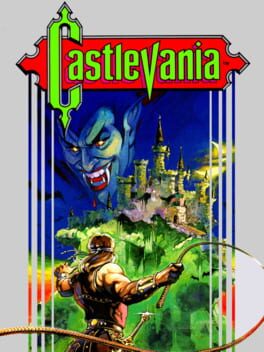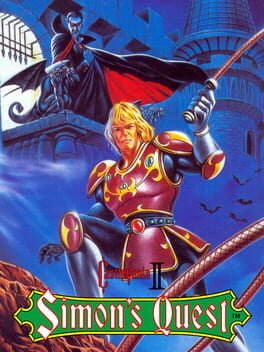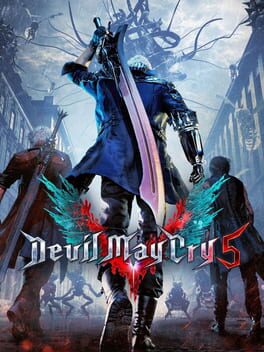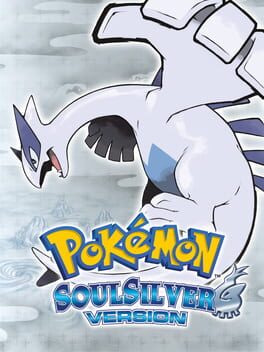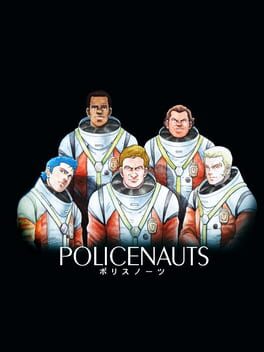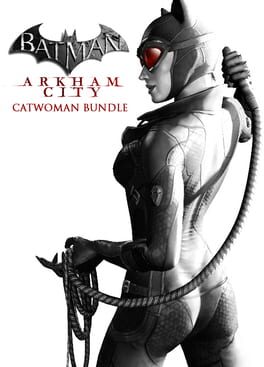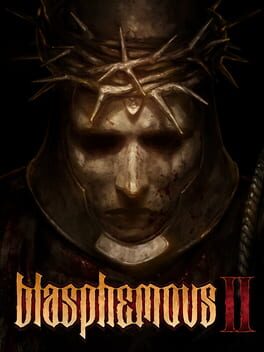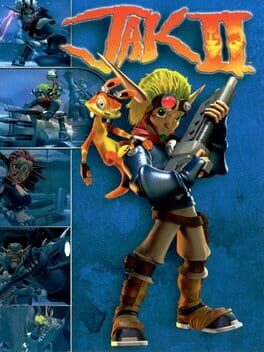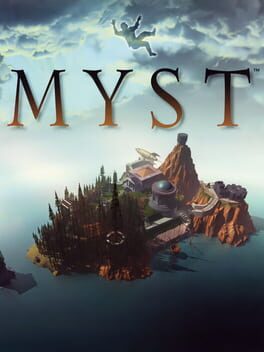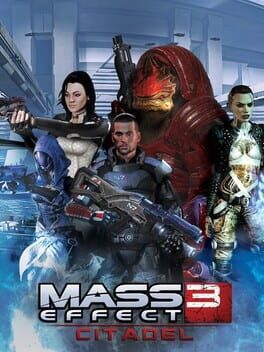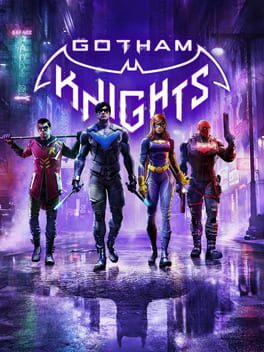spvrinna
1986
2019
My platonic ideal of a video game; an astounding achievement of design and artistry. Every facet of the game is handled with mastodontic reverence and consideration of the game's experiential goals for the player. Unlike any game I've ever experienced, Outer Wilds weaponizes hindsight so strongly that it feels personal, as if completion equates to the denial of pleasures in life you cannot revert to living without; you will evangelize of your own volition to anyone who will listen, just to taste again the sweet condensation of the first-time-playthrough experience vicariously through those you convert. I pity those who have not yet played this game, but I grieve for those of us who have, and won't be able to play it the same way ever again. Outer Wilds is more than just a video game; it's a revelation.
2016
Dark Souls III is both an unfortunate capitulation to the misguided backlash of its predecessor, and also, a lachrymose homage to what fans fondly remember about the first game. It feels less artistically striking than either entry in the trilogy, but it's also the most consistent and balanced. If Dark Souls put you off, I'd recommend starting here instead.
2019
A total rejection of an industry-wide obsession with the artistic successes and clout of Film, Devil May Cry 5 is unashamedly a video game; a Playstation 2-era devotion to gameplay supremacy and narrative earnestness, but with modern, AAA production values. It feels lost in time, the kind of game they don't make anymore; it shouldn't exist, but somehow it does, and I couldn't be more pleased with the result.
2017
I can't recommend anyone get into this game. I've put over 2000 hours into it, so, trust me on this. I can put this game down for 8 months and come back and I'm still doing the same boring missions, grinding the same maps and strikes and missions over and over again just to have a CHANCE to get gear that I want to EXPERIMENT with. Every facet of the game seems deliberately designed to waste the player's time and prolong the experience artificially. Bungie doesn't care about their game, about art, or about their players. I've stopped playing this game for the better part of a year, and I'm instantly reminded what it means to have fun playing a video game.
1994
Very fun game! Unconventionally conventional, I say. Policenauts wears its influences on its sleeve, unashamedly, and the result is something that feels like a celebration of its source material rather than a cynical rehash of familiar ideas. The game's premise alone is almost enough for me to call it an instant-classic: set in the future, humanity is finally on the brink of genuine space colonization. An elite set of police officers are chosen from across the globe to serve as the first (and exemplar) members of the Policenauts -- space cops, basically. The protagonist, Jonathan, is on a routine spacewalk when suddenly, his space suit detaches from the station, and he's lost to space for the next 25 years. Turns out, he was able to go into cryogenic sleep all that time, and when he wakes, everyone he knows -- his partner Ed, his (now ex-) wife, Lorainne -- they're all 25 years older, where he's the exact same. This is the context for the game's opening, and it's just so campy that I can't help but love it.
The game was equally capable of being funny as it was emotionally engaging, without one encroaching on the other's territory; within an hour of the game, I'd methodically inspected every item on the protagonists' desk, reading his melodramatic, boomer, man-out-of-time comments about how much the world has changed, how his bills are stacking up, and how no one knows how to do things "the old-fashioned way." It's equally effective as a world-building technique as it is hilariously over-dramatic. (I choose to read it as tongue-in-cheek.) Shortly thereafter, however, your ex-wife enters the room and suddenly the game is able to command your attention and have you take the events seriously, even though it was just making you laugh. It's a really astounding feat how many sensations the opening of the game is able to inspire.
There are some major turn-offs that some people won't be able to get over, such as the casual homophobia and sexism, or the dated controls (things a remake could easily solve, Konami) but for those of us who are willing to but up with it all, there's a fun 12~ hours of classic-Kojima storytelling and game design.
The game was equally capable of being funny as it was emotionally engaging, without one encroaching on the other's territory; within an hour of the game, I'd methodically inspected every item on the protagonists' desk, reading his melodramatic, boomer, man-out-of-time comments about how much the world has changed, how his bills are stacking up, and how no one knows how to do things "the old-fashioned way." It's equally effective as a world-building technique as it is hilariously over-dramatic. (I choose to read it as tongue-in-cheek.) Shortly thereafter, however, your ex-wife enters the room and suddenly the game is able to command your attention and have you take the events seriously, even though it was just making you laugh. It's a really astounding feat how many sensations the opening of the game is able to inspire.
There are some major turn-offs that some people won't be able to get over, such as the casual homophobia and sexism, or the dated controls (things a remake could easily solve, Konami) but for those of us who are willing to but up with it all, there's a fun 12~ hours of classic-Kojima storytelling and game design.
2023
A largely inoffensive sequel. The changes are not plentiful nor mind-blowing, but I can't complain since it held my interest to the end.
The overall experience goes from "been here, done that" to "oh, that was neat", but never really ventures beyond either end of that range. For every cool puzzle, there were 10 moments of jank I felt in the combat, where I'd get stun-locked into an instant death. Taking damage (and definitely getting stunned) upon simply making contact with the enemy should have been reevaluated. Blasphemous 1 had this issue too, but you'd expect an improvement in a full-on, numbered sequel. That's actually a large problem in general here, that this feels like Blasphemous 1, but just... more of it. It's not really a sequel as you'd come to expect from video games.
I'm not a fan of the cutscene direction; the art style feels too clean for the aesthetic the games have been trying to capture. At times it ventured into "way too anime" (disparaging) and I couldn't help but roll my eyes. The lack of real emotional or mechanical difference in the endings was something I was disappointed by. Either you have the item that gives you the cutscene, or you don't. Either way, the final fight is the same, and very easy. Neither ending here achieved much of anything for me. You either save everyone by defeating the final boss and ascend to heaven, or you... save everyone by defeating the final boss and ascend to heaven, except this time you get a cutscene with all the characters from the first game.
I know for me, the cool setting and characters were not enough to save the game from its faults this time. I enjoyed it, but it hardly leaves the impression that Blasphemous 1 did. Hopefully they continue to support the game with DLC and post-launch updates, just like the previous game. They've still yet to top everything that was introduced in the Wounds of Eventide update.
The overall experience goes from "been here, done that" to "oh, that was neat", but never really ventures beyond either end of that range. For every cool puzzle, there were 10 moments of jank I felt in the combat, where I'd get stun-locked into an instant death. Taking damage (and definitely getting stunned) upon simply making contact with the enemy should have been reevaluated. Blasphemous 1 had this issue too, but you'd expect an improvement in a full-on, numbered sequel. That's actually a large problem in general here, that this feels like Blasphemous 1, but just... more of it. It's not really a sequel as you'd come to expect from video games.
I'm not a fan of the cutscene direction; the art style feels too clean for the aesthetic the games have been trying to capture. At times it ventured into "way too anime" (disparaging) and I couldn't help but roll my eyes. The lack of real emotional or mechanical difference in the endings was something I was disappointed by. Either you have the item that gives you the cutscene, or you don't. Either way, the final fight is the same, and very easy. Neither ending here achieved much of anything for me. You either save everyone by defeating the final boss and ascend to heaven, or you... save everyone by defeating the final boss and ascend to heaven, except this time you get a cutscene with all the characters from the first game.
I know for me, the cool setting and characters were not enough to save the game from its faults this time. I enjoyed it, but it hardly leaves the impression that Blasphemous 1 did. Hopefully they continue to support the game with DLC and post-launch updates, just like the previous game. They've still yet to top everything that was introduced in the Wounds of Eventide update.
2003
1993
Myst falls into the category of great games that, with a good remake, would easily be considered classics. I found myself immediately gripped by the world, scouring the environments for any potential clue, reading personal journal entries and taking actual, physical notes with a pen and paper of what I considered to be important. When I finally came across the critical information I lacked, I often almost instantly formed a hypothesis based on it. And the game tends to earn this kind of engagement, because the puzzles are simply fantastic. Both mechanically and internally, they make perfect sense and require the player to fill in the logical leaps based on available information. It never condescends, but neither does it feel esoteric.
Beyond mechanics, the game has an undeniable 90's charm to it, with cheesy voice (over-)acting and pre-recorded live-action cutscenes. Considering how antiquated it is, it's all surprisingly engaging, and the game (rightfully) lacks any kind of shame in it's story, presentation and performances; it plays everything absolutely straight, and I adore that kind of earnestness in any creative endeavor. These story moments never overstay their welcome, in fact most can simply be ignored, but I was surprised at how compelling it became once I understood how this "universe" works internally. All of this is rounded off by some surprisingly great music, which plays at key moments in the game to cap-off puzzle development; it has a style so off-the-wall, so 90's, you likely haven't seen much anything like it since, giving Myst a truly unique identity.
I didn't love all of it, though.
Myst has all pre-rendered backgrounds which have aged about as well as you'd expect from an early-90's game. This is par for the course with point-and-click games, and it never looks ugly (in fact it's quite the contrary), but the trouble comes from two distinct but non-overlapping sources:
1) the lack of angles from which to view an area or object. I can say that at least one stage is made more difficult simply due to the static camera position, which makes basic navigation of the stage cumbersome; the lack of animation in the backgrounds also makes the consequences of your interaction with the world challenging to discern;
and
2) the non-linearity of the world. While I would normally commend a game for giving the player total agency in regards to which order they tackle the game's content, if you don't carefully consider and balance the experience properly, players can very easily get stuck, or have an inverse difficulty curve, leaving a poor (and flawed) impression of the game's consistency. In Myst there's a clear (ideal) order to play the stages. Not just according to difficulty, (I actually think the easiest stage should be second) but also according to available information. The hardest puzzle in the game can be brute-force'd, but the critical information necessary to understand what the puzzle is even asking is found in another level.
I would normally have no problem with this. But I also would normally have the ability to backtrack and visit another stage should I get stuck. This is a major problem for Myst, because there's no way to escape the stage you're on, except for solving the puzzle. This isn't just a mechanical choice, either; there's a lore explanation that prevents backtracking, and it seriously hurts the game's progression. Luckily, this sort of thing can be fixed by having a friend tell you, "Hey, do [X] stage last. Trust me."
Myst has some fatal flaws that hold it back from greatness, but if you're trying to scratch the puzzle-solving itch of Outer Wilds, or just have a weekend to spare, there are worse ways to pass the time than this.
Edit: After having played the two remakes, I have concluded the best way to enjoy Myst is through the 2014 realMyst: Masterpiece Edition version. I don't love every change they made, but it's probably the best way to enjoy the game now.
Beyond mechanics, the game has an undeniable 90's charm to it, with cheesy voice (over-)acting and pre-recorded live-action cutscenes. Considering how antiquated it is, it's all surprisingly engaging, and the game (rightfully) lacks any kind of shame in it's story, presentation and performances; it plays everything absolutely straight, and I adore that kind of earnestness in any creative endeavor. These story moments never overstay their welcome, in fact most can simply be ignored, but I was surprised at how compelling it became once I understood how this "universe" works internally. All of this is rounded off by some surprisingly great music, which plays at key moments in the game to cap-off puzzle development; it has a style so off-the-wall, so 90's, you likely haven't seen much anything like it since, giving Myst a truly unique identity.
I didn't love all of it, though.
Myst has all pre-rendered backgrounds which have aged about as well as you'd expect from an early-90's game. This is par for the course with point-and-click games, and it never looks ugly (in fact it's quite the contrary), but the trouble comes from two distinct but non-overlapping sources:
1) the lack of angles from which to view an area or object. I can say that at least one stage is made more difficult simply due to the static camera position, which makes basic navigation of the stage cumbersome; the lack of animation in the backgrounds also makes the consequences of your interaction with the world challenging to discern;
and
2) the non-linearity of the world. While I would normally commend a game for giving the player total agency in regards to which order they tackle the game's content, if you don't carefully consider and balance the experience properly, players can very easily get stuck, or have an inverse difficulty curve, leaving a poor (and flawed) impression of the game's consistency. In Myst there's a clear (ideal) order to play the stages. Not just according to difficulty, (I actually think the easiest stage should be second) but also according to available information. The hardest puzzle in the game can be brute-force'd, but the critical information necessary to understand what the puzzle is even asking is found in another level.
I would normally have no problem with this. But I also would normally have the ability to backtrack and visit another stage should I get stuck. This is a major problem for Myst, because there's no way to escape the stage you're on, except for solving the puzzle. This isn't just a mechanical choice, either; there's a lore explanation that prevents backtracking, and it seriously hurts the game's progression. Luckily, this sort of thing can be fixed by having a friend tell you, "Hey, do [X] stage last. Trust me."
Myst has some fatal flaws that hold it back from greatness, but if you're trying to scratch the puzzle-solving itch of Outer Wilds, or just have a weekend to spare, there are worse ways to pass the time than this.
Edit: After having played the two remakes, I have concluded the best way to enjoy Myst is through the 2014 realMyst: Masterpiece Edition version. I don't love every change they made, but it's probably the best way to enjoy the game now.
2015
2022
If you can believe it, this Ubisoft-tier open world-having live service looter action-adventure RPG's major problems have nothing to do with the gameplay: the writing is, at best, serviceable and, at worst, baffling. I must admit however that somehow I didn't drop it before seeing the final credits, but I think that's largely because my favorite of these characters, Batgirl, is the least offensive and has the best outfits and gameplay, so I was chilling.
I would not pay money to play this, which is why I recommend pirating it like I did or otherwise just skipping it.
I would not pay money to play this, which is why I recommend pirating it like I did or otherwise just skipping it.
